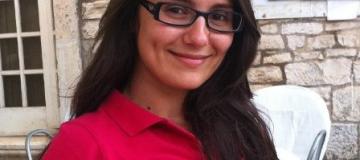
Seminar by Fatma Usheva
Sala Seminari – I° piano, Palazzo Levi Cases, Via del Santo 33, H 12.30
13.03.2018
Seminar by Fatma Usheva, University of Padua - DSEA
Title: Childhood Environment and Adolescent Criminal Behaviour” (co-authored by S. Dimova)
Abstract: In this paper we ask who is more likely to commit a crime, first or second generation migrant children. We further investigate whether age at migration for those born abroad plays a role in later-life criminal behavior. Our econometric approach relies on family-fixed effects. By comparing siblings in the same family, we are able to identify the causal effect of being born abroad on later-life criminal behavior. We find that first-generation children are significantly more likely to be charged with or convicted of a crime relative to their native-born sibling. Moreover, our data suggest that children coming after school-starting age are much more likely to engage in delinquent behavior. We test for two mechanisms potentially explaining our results: education and experience of a war during childhood. While lower educational achievement of first generation explains their higher crime rate, exposure to a violent environment does not seem to play a role.







